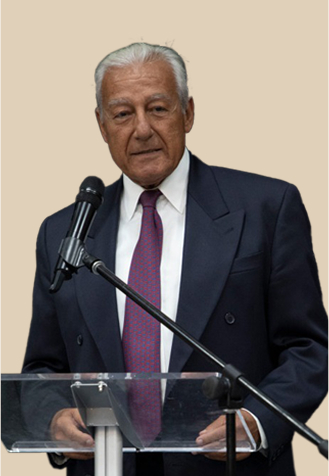Background Information on Reno v. ADC
Reno v. ADC, also as known as the “LA 8 case,” stems from a long-standing attempt by the INS to deport 7 Palestinians and a Kenyan on the grounds that they were members or supporters of the Popular Front for the Liberation of Palestine. They were originally arrested in 1987 by the FBI, under the infamous McCarran-Walter Act on charges of advocating world communism. Those charges were dropped, but the 8 were then accused, under a different section of the Act, of advocating the killing of government officials and the unlawful destruction of property. None of the charges could be substantiated, and the “LA 8” were turned over to the INS for deportation. 2 were fully legal permanent residents, while the other 6 had minor technical violations.
The LA 8 won an injunction preventing the INS from going forward with the deportation process on the grounds of selective enforcement of the law, since all parties agreed that they were being singled out for their pro-Palestinian political beliefs. The government freely admitted that, had the LA 8 been citizens, all the activities for which they were to be deported would have been protected by the First Amendment. ADC and the LA 8 won at every stage until the case reached the Supreme Court in October 1998, with all lower courts holding that immigrants enjoy a constitutional right to free speech and not to be subjected to a selective enforcement of the law.
The Clinton administration sought to overturn the injunction preventing the INS from deporting the LA 8 by using the 1996 Immigration Act, which it interpreted as barring immigrants facing deportation from access to District Courts. Given their unique combination of full discovery and constitutional jurisdiction, District Courts are the best, and in many cases the only viable, forum for the assertion of constitutional rights. In effect it may be the only way for immigrants to challenge the manner in which they are being treated in the course of the effort to deport them. The Supreme Court agreed to rule on the jurisdictional question, but not on the issues in the case. The Court agreed that the 1996 law does indeed prevent immigrants facing deportation from going to district court, thereby invalidating the LA 8’s injunction and opening the way for the INS to resume deportation proceedings against them. But the Supreme Court went further, in spite of the fact that it had not been briefed or heard argument on the issue, ruling that immigrants facing deportation can almost never raise a claim of selective enforcement. The Supreme Court authorized the government to use selective enforcement in deportation cases as it sees fit, stating that “The Executive should not have to disclose its ‘real’ reasons for deeming nationals of a particular country a special threat – or indeed for simply wishing to antagonize a particular foreign country by focusing on that country’s nationals …” Thus categories such as race, ethnicity, religion, political belief, etc. would now appear to constitute legitimate grounds for selective enforcement of the law in deportation cases.
Given that the Court was not briefed on the issue, and heard no arguments on behalf of the right of immigrants to be free from selective enforcement of the law due to their political beliefs, ADC is asking the Supreme Court for a rehearing in the matter of Reno v. ADC.
Recent Posts
Action Alerts

Your support means everything. Your gift protects rights, builds community, and fights hate. Let’s move forward together.
